Meredith Sue Willis's
Books for Readers # 159
February 1, 2013
It looks better online! -- Read latest changes and corrections online -- MSW Home
In this Issue:
Ashes Rain Down by William Luvaas;
Green-Silver and Silent Poems by Marc Harshman;
Tom Jones by Henry Fielding; Pamela Erens on THE GOOD EARTH;
Wanchee Wang Reviews THE BOY By Lara Santoro;
Joel Weinberger on AMERICAN PSYCHO; The E-Reader Report with John Birch
White Water Rafters on Oradell at Sea
Announcements; Good Reading Online and On the Air
Free e-mail subscription to this newsletter.
To create a link to this newsletter, use this permanent link .
For Back Issues, click here.
There's nothing quite as comforting as a good-humored dystopian novel on a day of sleet, rain and snow. I just finished William Luvaas's ASHES RAIN DOWN: A STORY CYCLE, from Spuyten Duyvil Press. Luvaas is a well known teacher, editor, novelist and much published short story writer. He calls this a story cycle, which is to say that it is a set of closely tied stories. It is not plotted like a novel, and that is perfectly appropriate for its world– a"California hillbilly" community called Sluggards Creek during a time of troubles in the near future or not-so-far-in-the-future. The land, the weather, the relationships are constantly fraying and falling apart and being patched back together. Rivers have swelled and overflowed; St. Louis is one casualty among many. There are droughts and fires and plagues of blue bottle flies that seem to cause personality changes. In one story a chunk of California slides into the Pacific– and floats west toward Japan. There are destructive rains and a terrible wind.
Characters, especially the recurring Lawrence Connelly, have to face up to changes in people as frightening as the changes in the weather– ultimately in himself as well There are a lot of aging Vietnam war veterans and perhaps a few too many people who think they are still in the Sixties. What's wonderful here, though, is not the weather troubles or the never-detailed "Forever War." These things are terrifying, but not so different from what we hear about today, except so far we don't have quite so many, not yet.What's wonderful is Luvaas's people and their web of relationships and their stubborn determination to cope. Some of them cope by moving from the half of the house the tree crushed to the half where it didn't. Or, if the garden dried up, they cook cactus fruit or a lizard (which makes everyone sick). There is an epidemic of typhoid fever that a lot of people recover from.I appreciate the way the stories end, as each day of our lives end, with some ups, some downs, some hope, some despair. A lot of mourning and craziness. It's not the kind of harrowing, nearly unrelieved horror of, say, Cormac McCarthy's THE ROAD. There are a reasonable number of people who still consider themselves part of a community, willing to help each other, at least occasionally. Displaced killer hordes are rumored to be coming from the abandoned cities, but they never show up. A family of trashy wanderers moves in on a lone woman, but they are mostly violent to each other.It's hard to give a flavor of these stories– I think the salient point is that there is a lot of comedy in the heart of this book– not hysterical comedy, or cruel comedy, just the everyday comedy we all live with but don't always pay attention to. Even the deeply suffering Gil Ridley who gives his wife the grace of a mercy killing and is tortured by it, surrounds himself with little ceramic caricatures of presidents his wife made (the two Bushes, of course, but also, slyly, the three Clintons). Lawrence locks his dogs in the cellar to keep them safe from the terrible wind, and forgets where they are. A woman he once loved passionately comes back to town, and he about goes crazy with lust for her plastic legs– she was at the World Trade Center, but that's not where she lost her legs. It's this kind of quirky humor that runs through these stories without ever pushing them over the top into farce or silliness.Maybe hard to give the flavor, but it is well worth tasting
I also read a book of poetry, Marc Harshman's new GREEN-SILVER AND SILENT POEMS, a lovely book that creates the out-of-doors, ridges, rills, rocksand skies in your mind in a way I can't quite fathom. One poem called "Setting the hook," about fly fishing, says,
Impossible, the patience, but it comes,is welcomed, fed by the air and solitudeas much as the magic, liquid pull of the fish itself;
Sometimes a single phrase knocks your socks off: "the herring flash of the northern lights" in "Going North for the Winter." Some-times it's the whole poem, a lovely one called "Oxford" in which he focuses not on the medieval stones of the university but on plants and farm animals. I'm especially fond of his prose poems, short blocks of wonderful images in language like "In Time for Supper" that begins "He flinches at the sight of his mother's bra and panties strung along the still clothesline." Marc, who is the new Poet Laureate of the Great State of West Virginia, has reviewed for this newsletter, and is an award-winning writer of children's books. His home page is http://www.marcharshman.com.
Finally, I re-read of Tom Jones, which hardly needs my recommendation, but I happily give it! I pretty much hated it when I read it in the spring of 1968 in my English novels course with Professor Irene Tayler at Barnard. I was more interested in SDS and occupying the administration building at Columbia University and trying to stop the war in Vietnam, and the novel offended me. This read, in my pending decrepitude, I found it rollicking (everyone says that) and good humored, and I'm not all insulted. The women are, in fact, active, sexual, and even assertive. I completely missed that 45 years ago.
I especially enjoyed the hints of what life was like in the 1700's. How people don't know anything beyond a few miles away, and there was no regular transportation. Sophia Western and the other women as well as the men ride horseback all night, for hours. The social classes interact pretty regularly, especially when the lower classes aren't too sure of whether the others are real "quality" or not. And clothes seem totally to make the person, sex is pretty ordinary, humor heavy-handed. Fielding manages to be at once cheerful and misanthropic, and most of the characters seemed to be motivated primarily by money, except Sophia and Tom and Squire Allworthy.
And no one is very good at understanding motivation. Critics have been so exercised over the "flat" or at least unchanging of the good people and the bad that they seem to be missing that the characters themselves don't have a very good sense of what's beneath the surface of one another. As if they are seeing flat characters which means being easily duped.
Well, the bottom line is that I really enjoyed the book. It was a far less prudish time than Victorian days, and, as the preface in my old sneeze-producing paperback copy says, it is also highly organized: there is an introductory essay for each volume, and the plot developments follow neatly even as they rollick along. Sophia and Tom are easy to feel for, although neither one is all that interesting as an individual. They are, however, interesting in motion, in situ. Sophia (from that preface again) is the anti-Clarissa-- she runs away, but keeps her virginity and good sense. She holds herself away from all the men, including Tom, till he has gained a proper position in society. His impossibly bad luck is wonderfully satisfying as you know the wheel or fortune will lift him up again. He discovers that Mrs. Waters is his mother-- and then that she isn't, but knows who his mother is! You have to love Squire Western popping up frequently to call all the women, including his own daughter Sonia, bitches, and how he drinks himself insensible every night.
Tom leads with his libido, is the "natural" man, but is also dependably warm-hearted, helping out even the highwayman who robs him to feed his family.
It's the entire thing that's such a pleasure, the convoluted but always clearly explicated plot, the wheel of fortune taking Tom down and bringing him back up. The women with sexual appetites who don't end badly just because they had affairs. Sexual appetite doesn't equal tragedy for the women, a worthy idea in itself after too much Dickens. In spite of distance in time and so-called flatness, it is so wildly alive.
I also read an excellent if too detailed biography of Fielding (Henry Fielding: A Life by Donald Thomas). The last quarter is especially moving, with Fielding in his early forties becoming a London magistrate trying to clean up crime in the streets a little. Meanwhile he spends several years dying of terrible gout, and "dropsy" (probably congestive heart failure), which was treated by having his swollen belly "tapped" every couple of weeks– essentially a sharp-ended tube was popped in to drain ten to fourteen quarts of fluid.
It makes you appreciate 2013.
Melanie Vickers Recommends Some Great Middle Grade Novels
Melanie Vickers writes: "I continue to read and study middle grade books similar to what I am writing. The style and stories most appealing to me are Karen Cushman's The Midwife Apprentice, Kate DiCamillo's Because of Winn Dixie, Scott O'Dell's Island of the Blue Dolphin, Phyllis Reynolds Naylor's Shiloh, William H. Armstrong's Sounder.
"All focus on themes I want in [my own novel about] an adolescent discovering his/her strengths during adversity, solving problems and relying on an animal for love and support."
Shelley Ettinger on Naked Singularity, Infinite Jest, Publishing, and a lot more
Shelley Ettinger's blog Read Red is always worthwhile, but this one is especially interesting: http://readwritered.blogspot.com/2013/01/a-naked-singularity.html
JOEL WEINBERGER on AMERICAN PSYCHO by Bret Easton Ellis
So, one has to start with the brutality of the book. It is incredibly brutal. Bloody, bloody, bloody. And, at a certain point, it's hard to get by this.
Now, for the rest. For the most part, I really enjoyed the book. It was a fascinating look at materialism and what it really comes down to. At times, the lists and lists of clothing designers and popular restaurants becomes tedious, but I actually found that it really drove the shallowness of the characters home.
But the brutality. It just became difficult to read at a point, and, frankly, after a while I lost track of what the point was.
Wanchee Wang Reviews THE BOY By Lara Santoro
A single mother in her forties, Anna finds herself drawn to her neighbor's son, a young man some twenty years her junior. Against her better judgment, she succumbs to the inexorable pull of an affair with him. In the hands of a lesser writer, The Boy could have been nothing more than a titillating affair. Instead there are no titillating details à la Fifty Shades of Grey, just lots of descriptive prose that make us feel the longing that Anna feels: "Tight in her skin, hot in her head, she resolved a thousand times to leave but didn't. Every time she looked up, he was there, his eyes fixed knowingly on hers." The author has created a complex character whose flaws and past sins manage to evoke sympathy. Even at the end, when Anna does something irresponsible, one cannot help but feel sorrow for the consequences and wish for a different outcome.
Pamela Erens on THE GOOD EARTH by Pearl S. Buck
This book has a mysterious magic. It's taken me decades to get around to reading it, but now I understand why it has been required reading for so many English-speaking schoolchildren. Its style is deceptively simple, with strong overtones of King James Bible--parataxis, syntactical inversions. Thecontent is rich and complex, treating of human evil and human selflessness, temptation, reversals, the cycle of birth, youth, aging, and death. Every single character is highly individual and indelible.
To move from abstraction to the concrete: the story is of Wang Lung, a poor Chinese farmer who takes the only wife available to him--a slave in the household of a rich local family. This wife, O-Lan, lacks physical grace and beauty, but turns out to be extremely hard-working, infinitely resourceful, and as deeply committed as Wang Lung to the small plot of land he owns. With her help and thrift, he begins to expands his holdings, refusing to give them up even when bad harvests threaten them with starvation. His bond to his "good earth" is non-negotiable. O-Lan bears him several children, each of whom has his or her own fate.
Eventually, Wang Lung becomes wealthy himself--and that is when his troubles truly begin: he is tempted to take a mistress, his eldest son becomes a spendthrift, his freeloading uncle moves in... and "there is no peace in this house!" as he constantly and piteously cries.
The Good Earth is not a long book but it is a big one, full of human longing, struggle, and significance.
THE E-READER REPORT WITH JOHN BIRCH:
Pew Research Finds Drop In Readers Of Printed Books
Readers of e-books in the US increased from 16% of all Americans aged 16 and older to 23%, according to Lee Rainie and Maeve Duggan of the Pew Research Center. They also find that the number of people who read printed books in the previous 12 months fell from 72% of the population ages 16 and older to 67%. Not surprisingly, Pew's Internet & American Life project research shows that the move toward e-book reading coincides with an "increase in ownership of electronic book reading devices." In all, the number of owners of either a tablet computer or an e-book reader such as Kindle or Nook grew from 18% in late 2011 to 33% in late 2012. As of November 2012, some 25% of Americans ages 16 and older own tablet computers such as iPads or Kindle Fires, up from 10% who owned tablets in late 2011. And in late 2012 19% of Americans aged 16 and older own e-book reading devices such as Kindles and Nooks, compared with 10% who owned such devices at the same time a year earlier
'SHADES OF GREY' BOOST SALES OF E-BOOKS
Digital publishers in Frankfurt for the world's biggest book fair reported that the advent of e-books has led to increased sales of erotic fiction. Peter Ferris, a non-executive director of the British group Accent Press, explained that erotic fiction books are ideal for e-books, because many bookstores aren't comfortable stocking printed copies of them. Ferris claims that the sales increase is largely due to the success of E.L. James's "Fifty Shades of Grey" --- Brits spell it with an 'e' -- which rapidly became a trilogy after starting life as an independently published e-book. It was eventually published in print by Vintage Books and soon became the fastest-selling paperback book of all time, surpassing J.K. Rowling's Harry Potter series. X-cite, an imprint of Accent Press, is the U.K.'s largest publisher of erotic fiction, and the company anticipates that it's e-book sales for the year ahead will be three times higher than its printed book sales for 2011.
It's Nearly Here – The Bookless Library!
You won't believe it, but the city of San Antonio, Texas, has announced plans to open America's first bookless public library system. It will be housed in offices currently used by the city's tax and other departments, and is scheduled to open in the fall, with an initial collection of more than 10,000 e-books that will cost $250,000. The library will also provide 100 e-readers for patrons' home use. San Antonio's mayor, Judge Nelson Wolff, said that the new library is not intended to be a replacement for the city's existing library system. Mayor Wolfe said he expected some losses of the e-readers, each of which will cost $100, but added, "we do have your name, and we do have your address. Check the book out for two weeks just like a library book. After two weeks your e-book will go dead, so you won't have anything worth keeping." But that's not all. The start-up cost of the whole project will be $1.5 million. There will be a full staff to provide help for patrons with research and school homework. In addition there will be 50 computer stations, 25 laptops and 25 tablets for on-site use.
John Birch's current blog post, www.JohnBirchLive.blogspot.com is "Tough Assignment," about his experience in India after the world's most devastating industrial accident.
The White Water Rafters Discuss ORADELL AT SEA
I'm honored that the White Water Rafters discuss and share their conversation about my novel, ORADELL AT SEA here. I'm embarrassed, but I've lived in the northeast long enough to overcome my bashfulness!
CLICK HERE to read the discussion.
READ ONLINE AND ON THE AIR
Suzanne McConnell, an editor at BELLEVUE LITERARY REVIEW, introduces an excellent short story by Joan LeeGant here: http://blr.med.nyu.edu/content/editors-picks/sistersofmercy
"Make Good Art:" Neil Gaiman's video's commencement address about being an artist: http://www.huffingtonpost.com/2012/05/21/neil-gaiman-commencement-speech_n_1534005.html
It's the two hundredth anniversary of PRIDE AND PREJUDICE– read an article in FINANCIAL TIMES: http://www.ft.com/intl/cms/s/2/76ad7de0-5995-11e2-ae03-00144feab49a.html#axzz2Hn7BW8tv
WBAI-NY (99.5 FM) 3 POETRY SUNDAYS WBAI Sunday, January 27, 11am-noon Poet Hugh Seidman hosts fellow poets Lawrence Joseph, D. Nurkse, and Susan Wheeler. Broadcasting at WBAI/NewYork 99.5 FM Streaming live at www.wbai.org Archived for 90 days at www.wbai.org Archived: www.catradiocafe.com .
ANNOUNCEMENTS, NEWS, CONTESTS, WORKSHOPS, READINGS ETC.
The Kenyon Review is pleased to announce the 2013 KR Short Fiction Contest. The contest is open to all writers who have not yet published a book of fiction. Submissions must be 1200 words or fewer. There is no entry fee. The Kenyon Review will publish the winning short story in the Winter 2014 issue, and the author will be awarded a scholarship to attend the 2013 Writers Workshop, June 15th-22nd, in Gambier, Ohio. Additional info here.
For those of you with itunes and other Apple mobile devices, Danimaris Fonseca's picture book for children The Avocado Tree has just been published. https://itunes.apple.com/us/book/the-avocado-tree/id591312339?mt=11
Reading and publishing party to celebrate the publication of William Luvaas's new short story collection: Ashes Rain Down: A Story Cycle at Dixon Place in New York on February 5, 7:30-8:30 p.m.. Dixon Place is at 161A Chrystie Street between Rivington and Delancey; (212) 219-0736. Copies of the book will be available at the event and can also be purchased directly from the publisher after February 1 (www.spuytenduyvil.net) or on Amazon. Also, Luvaas's novels, Going Under and The Seductions of Natalie Bach, are now available as Ebooks from Foreverland Press: www.foreverlandpress.com and everywhere Ebooks are sold.
Pamela Erens, whose new novel VIRGINS will be published by Tin House in Summer 2013, has a lovely post on the Tin House blog about John Updike's sentences: http://www.tinhouse.com/blog/20854/20854.html
Wanchee Wang has a bylined interview/profile in her university alumni magazine: http://www.upenn.edu/gazette/0113/pro05.html.
Now available on Nook, Kindle, I-Pad, etc. -- Marion Cuba's (see her essay in issue # 110) novel SHANGHAI LEGACY about the psychological damage done to a woman who lived through deplorable conditions in Shanghai during World War II. Shanghai was one of the few places where German Jews could get a visa to leave Germany, and this is about one of the families that went– and how their suffering under the Japanese occupation was visited on the narrator Maya, whose life is ostensibly satisfying and certainly comfortable, but no less damaged for all that. What is most fascinating is this ghetto that most of us know little about– in Shanghai. One of the great reasons the great genocides and holocausts are so horrible is how the precious fabric of ordinary life is rent beyond repair and even into the next generation.
Love is the theme of Ang-Lit.Press's fourth fiction anthology LOVE IN ISRAEL. The successor to Israel Short Stories and Tel Aviv Short Stories, the new anthology is a salute/tribute to Israel's 65th anniversary. Though the settings and themes are quintessentially Israeli, the narrative voice is that of the "insider/outsider" - the Anglo (English-speaking) resident. Among the authors is Hannah Brown (see my review of her book IF I COULD TELL YOU) Many of the stories reflect Israel's complicated reality. "A major advantage of a short story anthology like ours," says Ang-Lit. co-founder/editor Shelley Goldman, " is that there is no chronological order. You can jump from Haifa, to the Negev, wherever, whenever you fancy. The stories, like their 45 authors, reflect and celebrate the vast diversity of readers' tastes and interests. It is the perfect genre for the frenetic 21st century – an instant literary fix for commuters, bedtime or occasional readers. "
Jeremy Osner has a poem video on The New Inquiry. http://thenewinquiry.com/blogs/zunguzungu/sunday-reading-46/
ON BARCELONA (http://onbarcelona.blogspot.com/) is inviting submissions: "Looking, as always, for work. No reading fees, no contest fees, no SASEs, no guidelines." Email halvard@gmail.com
Gemini Online Magazine contest– $4 entry fee: http://www.gemini-magazine.com/index.html
See Linda Marshall's new website. Terrific books for children with a Jewish theme.
THE WRITING LIFE WITH ELLEN BASS February 8 - 10, 2013 Esalen Institute, Big Sur, CA. This workshop will help keep the channels open. For more information, click here. To register, call Esalen at 831-667-3005.
MORE WITH ELLEN BASS: TRUTH AND BEAUTY May 28 - June 2, 2013 Taught by Dorianne Laux, Marie Howe, and Ellen Bass at Mabel Dodge Luhan House, Taos, NM. Marie Howe, Dorianne Laux, and Ellen Bass are poets who work to tell the truth in ways that show us the beauty of life, even in the midst of heartbreak and loss. If you want to encounter more truth in your poems, to express it in the most beautiful way possible, to craft poems that reflect the inextricable marriage of truth and beauty, love and death, the luminous and the ordinary, please join us for this special workshop. For more information about this workshop, visit the page here. To register, email Jen Petras at jpeachtree@yahoo.com.
Myra Shapiro's new book of poetry is just out: 12 Floors Above the Earth.Tony Hoagland says:“Like Grace Paley or Stanley Kunitz, Myra Shapiro possesses a cultivated, tough-minded voice, and an unflinching human commitment to know more. Whether she is asking hard questions about the flickering strangeness of sexuality, solitude, or religion, her special intelligence finds the difficult hinges and pressure points of life. And, because she does not hide from what she finds, her probing is both beautiful and moving. ‘In longing you close your eyes,’ she says, and ‘in wonder you open them.’ 12 Floors Above the Earth is a wonderfully alert and honest collection of poems. It is also darkly witty.“
Victor Depta' s new book is Twofold Consciousness: Poetry and Essays on Mysticism, available from Blair Mountain Press and fromAamazon.
He writes: "We all know how ephemeral emails are. They add up by the hundreds until our computers remind us of the overload. We touchthe delete key and hours of our lives simply vanish. For me, that fact became distressingly pertinent because, after I retired and moved away from campus, a student friend and I began an email correspondence on the subject of mysticism. I soon realized that I was investing too much thought and energy in the subject to have it disappear with the touch of a button. So I made hard-copies.
"After a few months I decided that, with so much material, I might shape it into a book, a collection of epistolary essays. I couldn’t use his emails. He was too busy pursuing an M.A. for that kind of editorial collaboration, so I re-worked my responses for coherence and continuity and published them as Twofold Consciousness: Poetry and Essays on Mysticism. He had been troubled by Buddhism and its lack of ultimate, metaphysical meaning, so my essays addressed the issue of meaninglessness in relation to mysticism (the experience of enlightenment) and to existentialism (our daily lives). I made distinctions between the self, consciousness, self-consciousness and pure consciousness. Self-consciousness is described as an epiphenomenon of language, while the alienation from material reality is made tolerable by the ecstasy of the enlightened experience, by pure consciousness, and by compassion rising out of meaninglessness. During the restructuring of my emails, I saw that the poems I had been writing for the past two years dealt with the same subject of spiritual meaning, so I included them as an integral part of the book."
The book is Twofold Consciousness, ISBN: 978-0-9768817-7-3 $15.00 Blair Mountain Press 114 East Campbell Street Frankfort, Kentucky 40601 502-330-3707 www.blairmtp.net.
"I hereby release my Goodreads review under a Creative Commons 3.0 Attribution License." -- Joel Weinberger
ABOUT AMAZON.COM
The largest unionized bookstore in America has a webstore at Powells Books. Some people prefer shopping online there to shopping at Amazon.com. An alternative way to reach Powell's site and support the union is via http://www.powellsunion.com. Prices are the same but 10% of your purchase will go to support the union benefit fund.
For a discussion of Amazon and organized labor and small presses, see the comments of Jonathan Greene and others in Issues #97 and #98 .
WHERE TO FIND BOOKS MENTIONED IN THIS NEWSLETTER
If a book discussed in this newsletter has no source mentioned, don’t forget that you may be able to borrow it from your public library as either a hard copy or a digital copy. You may also buy or order from your local independent bookstore.
To buy books online, I often go first to Bookfinder or Alibris. Bookfinder tells you the book price WITH shipping and handling, so you can compare what you’re really going to have to pay.
A lot of people whose political instincts I respect prefer the unionized bricks-and-mortar bookstore Powells (see "About Amazon.com" above) that sells online at http://powellsbooks.com.
Another source for used and out-of-print books is All Book Stores .
Also consider Paperback Book Swap, a low cost (postage only) way to get rid of your old books and get new ones by trading with other readers.
If you are using an electronic reader like Kindle, Nook, or Kobo, get free books at the Gutenberg Project—mostly classics, but other things as well. Libraries now lend e-books too!RESPONSES TO THIS NEWSLETTER
Please send responses to this newsletter and suggestions directly to Meredith Sue Willis . Unless you instruct otherwise, your responses may be edited for length and published in this newsletter.
BACK ISSUES click here.
LICENSE
Books for Readers Newsletter by Meredith Sue Willis is licensed under a Creative Commons Attribution-NoDerivs 3.0 Unported License. Permissions beyond the scope of this license may be available at http://www.meredithsuewillis.com.
To subscribe and unsubscribe, use the form below.
MSW Home



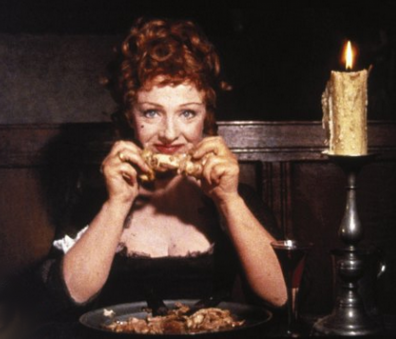
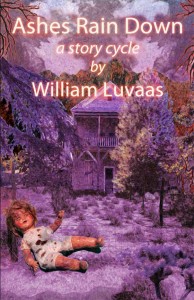
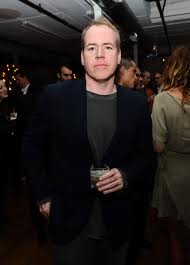
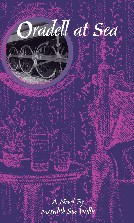
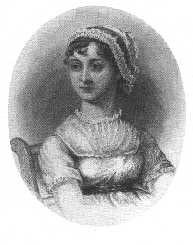

No comments:
Post a Comment